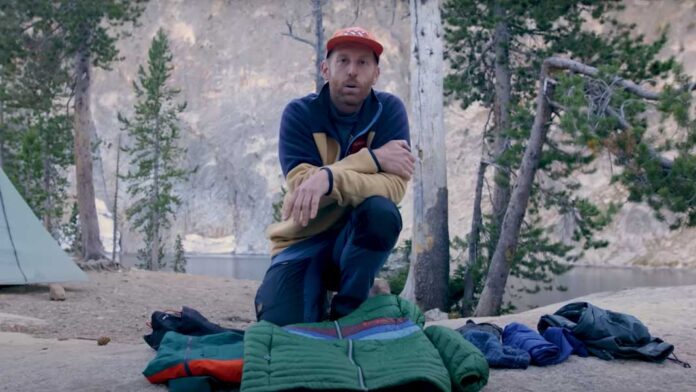As the days get shorter, the thermometer inexorably inches lower. But just because t-shirt weather has long since passed (for us northern-latitude folks anyway), the afterglow of summer still begs to be enjoyed by well-stocked backpackers.
There's no need to retreat for up to six months out of the year when all that is needed are a few key wardrobe upgrades and sleep-system tweaks. So today, I want to talk about four simple strategies to keep you going strong during the shoulder-season. Let's suit up!
Dress for success while winter camping
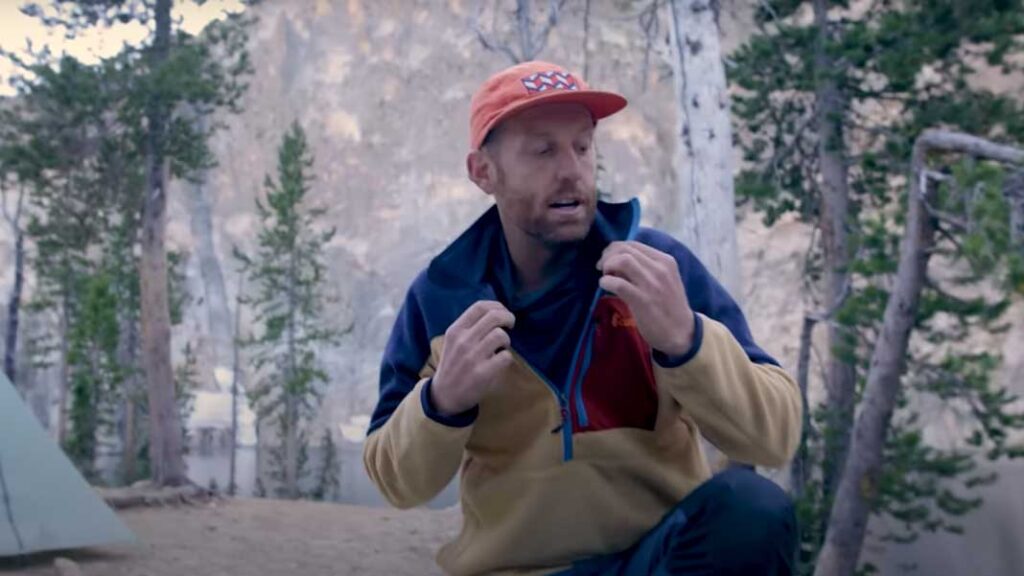
How should I dress for a winter camping trip?
The best way to extend your backpacking/camping season is to dial in your layering system. Throughout the shoulder-season, and into early winter, you may encounter rain, snow, harsh winds, or even toasty, sunny afternoons.
Being able to adapt your get-up to the conditions is key. My core upper body wardrobe is typically composed of a moisture-wicking technical t-shirt, followed by a lightweight hoodie, and then topped off with a half-zip fleece sweater.
As required, I'll then bust out my favorite down jacket, which is the undisputed champ for warmth-to-weight ratio. And finally, regardless of the forecast, I like to pop on a rain jacket as the evening sets in. Hardshell layers are not only great for staying dry, but also for blocking out those surgical winter winds.
Some recommended winter camping gear:
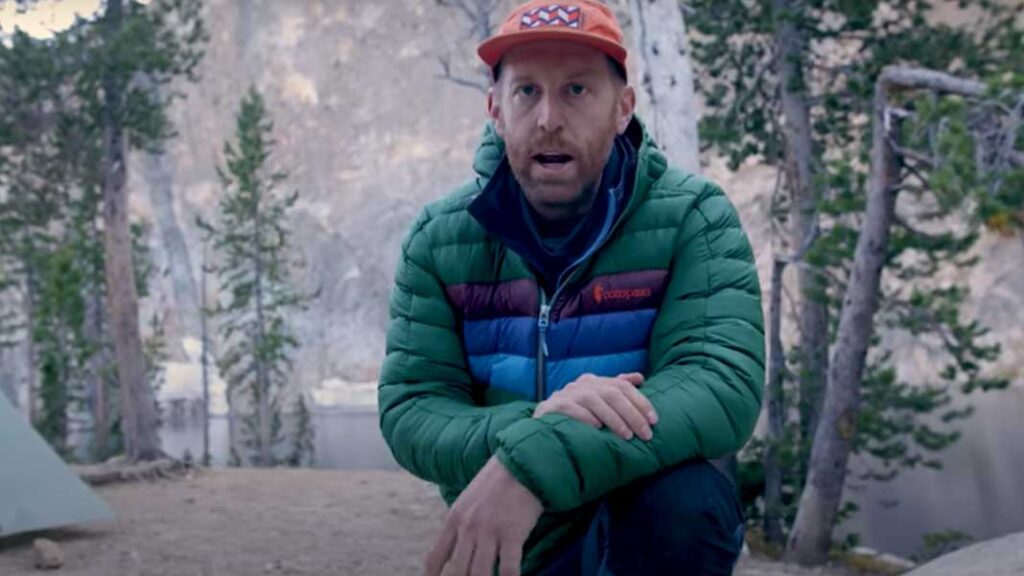
Downstairs, I always work off of a robust pair of hiking pants. When the sun dips behind the mountains, my next move is to throw on some long johns. Since it's much easier to stay warm than to get warm, make sure to be proactive with this simple base-layer. Once again, before settling in for the night, I'll cap things off with a pair of rain pants.
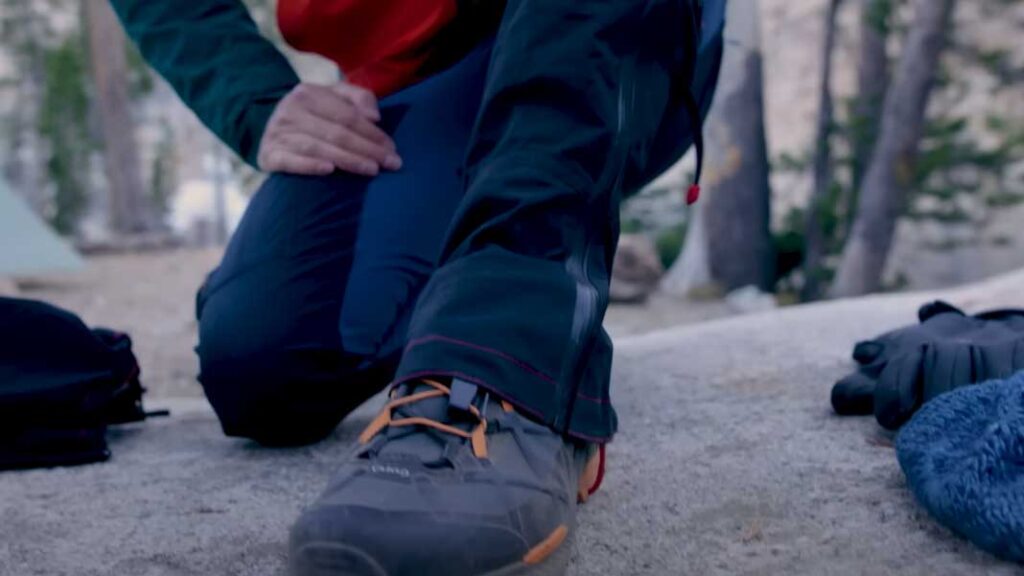
My last secret weapon (at any time of day) is a pair of gaiters. I prefer hiking in low-cut shoes and so gaiters are not only money for keeping my feet/ankles dry, but they also prevent the nippy winds from sneaking into those exposure points.
Winter camping tent, sleeping pad and bag
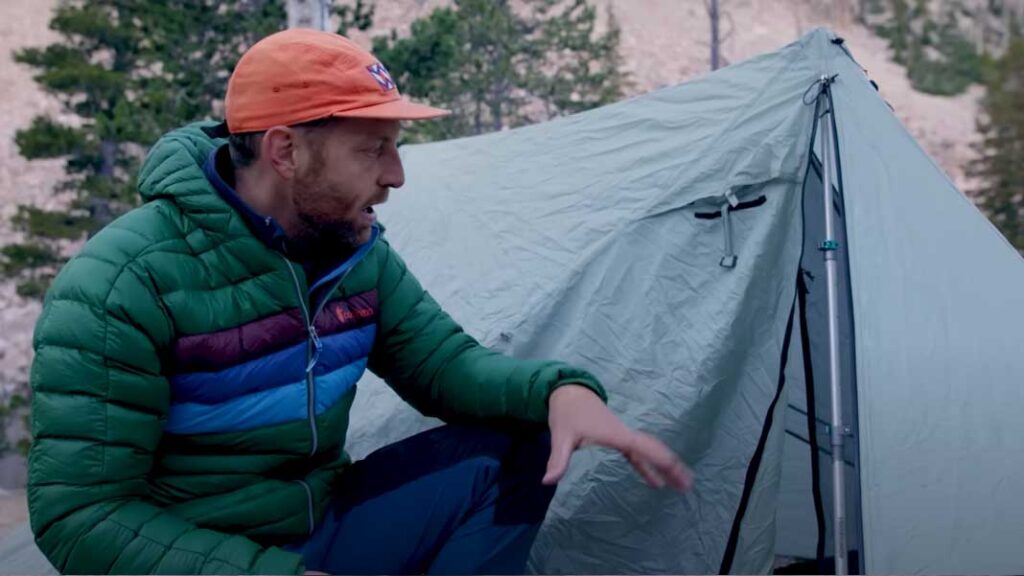
Imagine having two bodies in a two-person tent vs taking that same shelter out on a solo trip. All of a sudden, there's a lot more dead space and one less organic heater to fill it with. Now, a tent obviously won't offer spectacular insulation, but a smaller space will certainly be more efficient at preserving extra warmth.
Do smaller tents keep you warmer?
So if you're heading out in cooler conditions, try to select the smallest tent possible in which you can still sleep comfortably.
What does R-value mean for sleeping pads?
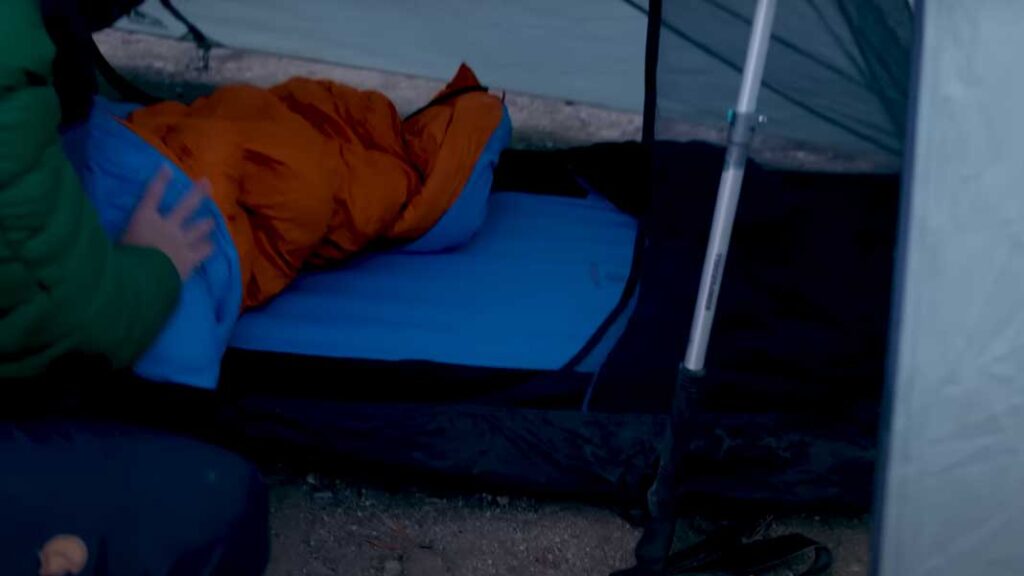
The R-value represents how well insulated a sleeping mattress is. The higher the number, the greater capacity it has to block the cold coming off the ground.
If you're camping on a chilly night, treat yourself to a nice and beefy, R-5 mattress to ensure a pleasant sleep. A simple foam pad might cut it during the fair-weather season, but otherwise, give this part of your sleep system a real ponder.
Sleeping bags for cold weather
Not every backpacker is going to be able to own multiple sleeping bags that are perfectly tailored to different conditions. So one of the ways you can boost the range of a three-season (~15-degree) bag is by adding a sleeping bag liner.
- Check out the Big Agnes Lost Ranger UL 3N1 15 Sleeping Bag
- Also have a look at the Sea to Summit Comfort Plus Sleeping Pad
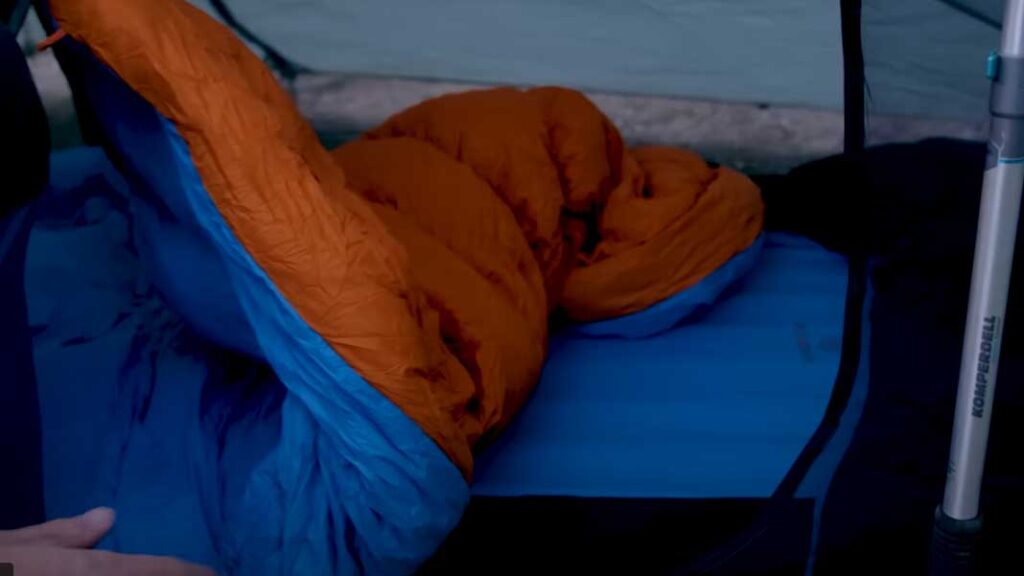
This will add in the neighborhood of 5 to 10 degrees Fahrenheit worth of warmth. Keep in mind that the stated temperature capacities for various sleep systems tend to refer to raw survivability.
If you want to sleep comfortably while winter camping, then it's important to select a warm enough bag, and/or adequately retrofit it, so that the lowest nighttime temperature you face is still well-within the system's calculated capacity. For more information about sleeping soundly in winter conditions, check out this article.
So don't hibernate at home just because the temperatures have dropped. With these few simple tweaks, and maybe some Christmas wishlist gear additions, you can do what you love for much longer.
Winter camping is a lot of fun and the winter is a great time of year to go backpacking. You just have to be a bit more strategic in order to make it happen.
Subscribe to our newsletter
I hope you enjoyed this article. For plenty of more backpacking content, subscribe to the In4Adventure newsletter.



